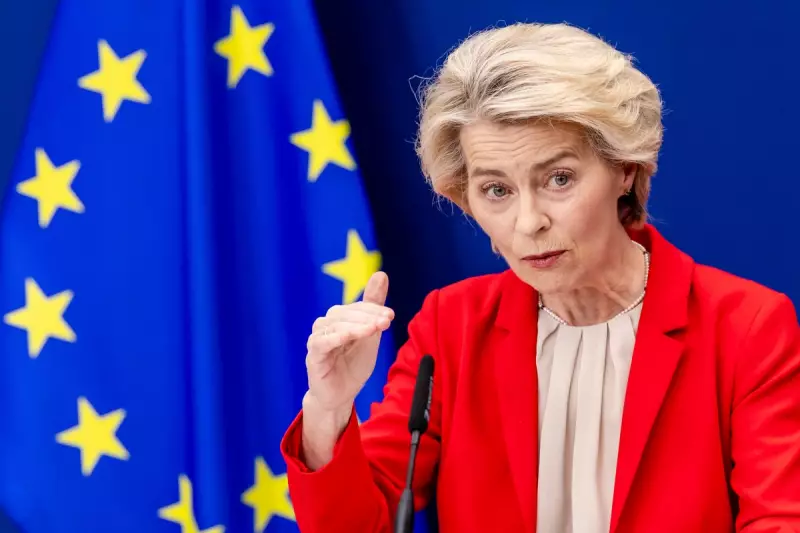
European Commission President Ursula von der Leyen is facing significant internal criticism for her handling of the Israel-Gaza conflict, with several EU member states accusing her of abandoning the bloc's traditional neutral stance.
The diplomatic row intensified after French President Emmanuel Macron publicly diverged from von der Leyen's position, calling for a "balanced" approach and urging Israel to cease its bombing campaign in Gaza. This public disagreement exposes a deep fracture within European leadership on how to address the ongoing crisis.
A Diplomatic Divide Emerges
The core of the dispute lies in von der Leyen's unequivocal support for Israel following the 7 October Hamas attacks. While she condemned the atrocities, her solo visits to Israel and strong rhetoric were conducted without a formal mandate from the European Council, angering several capitals.
EU foreign policy chief Josep Borrell has emerged as a vocal critic, implicitly criticising von der Leyen by emphasising that the European Commission's duty is to represent the consensus of all member states, not to pursue an independent foreign policy. He stressed that the EU's position must be "balanced" and consider the humanitarian crisis in Gaza.
Mounting Pressure for a Ceasefire
The internal EU tensions reflect the growing global pressure for a de-escalation. Leaders are increasingly aligning with calls for a humanitarian pause or ceasefire, a move Israel has so far resisted.
This situation places von der Leyen in a difficult position, caught between showing solidarity with Israel and adhering to the complex, often divided, will of the European Union she represents. The outcome of this disagreement could have lasting implications for EU cohesion and its role as a mediator in the region.





